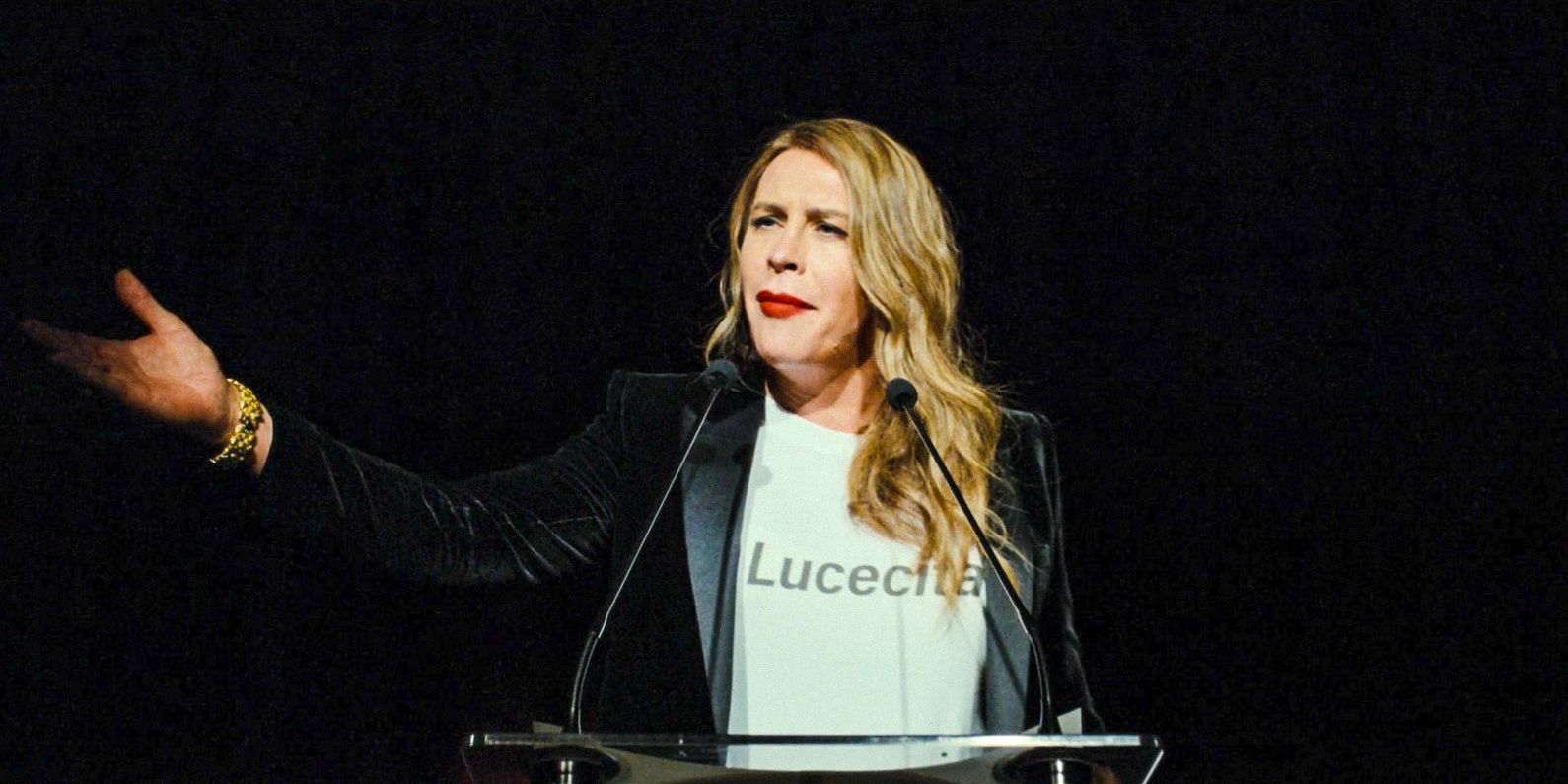Karla Sofía Gascón, the star of Emilia Pérez and the first trans woman to be nominated for Best Actress at the Golden Globes, has addressed the backlash surrounding the film’s titular star and production. The genre-blending musical crime comedy follows Mexican cartel leader, Juan “Manitas,” who undergoes a gender transition to start a new life as Emilia Pérez. Directed by French filmmaker Jacques Audiard, the Emilia Pérez cast features Karla Sofía Gascón in a transformative lead role, supported by Zoe Saldaña as Emilia’s conflicted lawyer and Selena Gomez as Emilia’s ex-wife and mother of her children.
In a conversation with Vanity Fair, Gascón confronted the onslaught of criticism Emilia Pérez has faced since its U.S. streaming release in November. While the movie has garnered critical acclaim, the depiction of its leading trans character and its broader production choices have sparked heated debates among critics and social media users. Speaking candidly about the award-winning film, Gascón said the following:
Many are running a negative, nasty campaign against the film, so anything that I say, they will use it to make their case bigger. They hate difference. They intend to control people’s bodies because that ends up being a way also to control their minds. When something has a big impact and is liked by many, others hate it just for existing.
Gascón also responded directly to critiques from members and critics of the LGBTQ+ community, addressing their concerns about the film’s portrayal of Emilia:
Being LGBTQ, having those labels, does not remove your stupidity, just like heterosexuality does not remove your stupidity. What bothers me is that the people that say things like that [are] just sitting down at home doing nothing. If you don’t like it, go and make your own movie. Go create the representation you want to see for your community.
There are some that say, ‘I want to see LGBTQ or trans characters outdoing what people do in real life,’ but we do bad things too…. I don’t understand the criticism about the representation of portraying Emilia Pérez this way. The reality is that the trans experience is not the same for everybody—my trans experience is different from somebody else’s.
What the Emilia Pérez Backlash Means
It’s A Spotlight On Representation, Identity, And Cultural Authenticity
The backlash surrounding Emilia Pérez highlights the delicate balancing act required when addressing themes of identity, culture, and representation in contemporary storytelling. The film’s daring exploration of a cartel leader’s gender transition reflects a bold step forward in featuring trans narratives at the forefront of mainstream cinema. Yet, criticisms of cultural inauthenticity, such as The Guardian’s observation that “Emilia Pérez was a film about Mexico where just one main actor was Mexican, made by a French director who speaks no Spanish, shot in France, scripted with unnatural-sounding dialogue, and heavy with stereotypes,” points to another level of representation viewers felt the film failed to portray realistically.
For Emilia Pérez, the debate raises critical questions about the responsibilities of storytellers in amplifying marginalized voices while avoiding reductive stereotypes.
Critiques from trans voices underscore ongoing challenges in crafting narratives that authentically reflect the diverse lives of trans characters. Yet, as Gascón noted about her own trans perspective, no single story can encapsulate the full spectrum of an identity as multifaceted as the trans experience. At the very least, as ScreenRant‘s Graeme Guttman wrote in a review of the film, “Emilia Pérez reveals itself as something wholly original,” as a melodramatic crime saga that’s “more concerned with [Perez’s] life than it is the thorny questions it poses.”
Related
The 15 Best Gay & LGBTQ+ Rom-Coms (& Where To Stream Them)
As the scope of LGBTQ+ representation in movies continues to evolve, more great gay rom-coms on increasingly larger scales are getting released.
While lending out the backlash against a film that has a trans actor and character at its forefront feels counterintuitive, it also reflects broader industry patterns as global audiences demand more authentic representation. With trans actors and stories becoming more visible, filmmakers face increasing scrutiny over who tells these stories and how they are told. For Emilia Pérez, the debate raises critical questions about the responsibilities of storytellers in amplifying marginalized voices while avoiding reductive stereotypes. Far from a setback, this conversation signals the growing maturity and care of audiences and the industry in holding creators accountable for meaningful, nuanced representation.
Our Take on the Emilia Pérez Controversy
A Bold and Polarizing Film That Demands Attention
Emilia Pérez is a daring piece of cinema that doesn’t shy away from its ambitions, blending genres and addressing themes of identity and transformation in a way few mainstream films have attempted. Gascón’s trailblazing performance as a trans cartel leader offers a fresh perspective that challenges traditional archetypes and puts trans narratives in the spotlight. However, the film’s polarizing reception is a reminder of how carefully these stories need to be treated, especially when they intersect with a marginalized ethnic or racial identity.
While the film deserves praise for pushing boundaries and sparking important conversations, it’s clear that it has also exposed gaps in how mainstream productions handle cultural and queer narratives. The criticism—both constructive and dismissive—signals the importance of deeper collaboration with the communities being represented. Despite its flaws, Emilia Pérez is an impactful work that succeeds in one of cinema’s greatest roles: igniting passionate debate and challenging audiences to think critically about storytelling, representation, and identity in modern media. Whether audiences love or hate it, Emilia Pérez has undeniably made its mark.
Source: Vanity Fair, The Guardian



